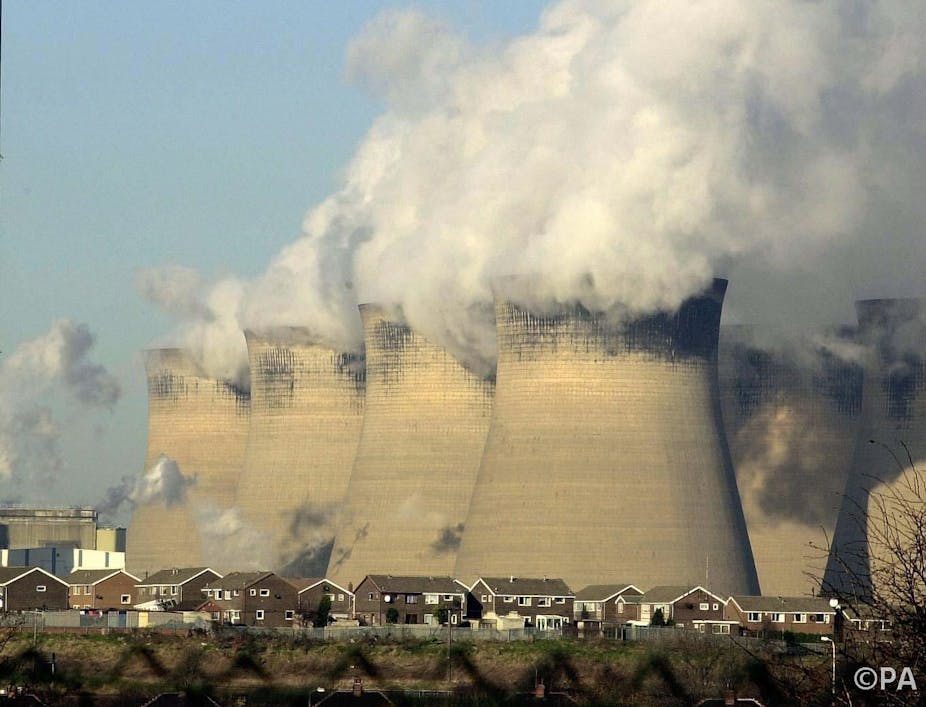On a clear day one can see North Somerset – the future site of Britain’s Hinkley Point C new nuclear power station – from Cardiff Bay, across the Severn Estuary. Deep in hilly Powys, arguments rage around where wind turbines should be located (or if they should be built at all). And although plans for the 11-mile, hydro-electric Severn Barrage have once again been kicked into the long grass, few would bet against this hardy proposal rising again.
Wales faces critical decisions, as does the rest of the UK, about how to meet its future energy needs. An energy generation network that is cleaner and more resilient to shocks is slowly becoming a reality. But the question remains as to exactly what the future will hold.
Rising household energy bills threaten the living standards of many families. Public anger at the “Big Six” energy companies and the government’s claims to be powerless to prevent further price hikes is growing. Fuel poverty – the choice between heating and eating – is a harsh reality for many.
So it is against this tense backdrop that public views about the energy system are formed and negotiated. Studies show that people are very positive towards renewable technologies like wind, wave and solar, dubious about the health and environmental impacts of fossil fuels like coal and gas, and in two minds about the “devil’s bargain” of nuclear power.
This picture changes a little on moving from the national perspective to a local one. Here specific developments are likely to be strongly challenged and contested, whether they are wind turbines, or fracking gas and oil wells. People are often accused of adopting a “not in my backyard” – nimby attitude – but research has revealed a more complex picture. People’s views about energy are comprised of more than a kneejerk yes or no answer.
Often, it is the lack of public involvement at the early stages of discussion about where to site new energy infrastructure that is at the heart of opposition. So although there are some firm opponents of wind farms (as well as many enthusiastic supporters), politicians and planners should expect controversy over “fracking” to be just as heated.
Recent research, conducted over four years at Cardiff University with thousands of members of the public, has produced the most comprehensive view of the public’s view of energy. The study found that although opinions on different energy technologies vary for a number of reasons, there are some core values that underpin these judgements.
Whether it is wind farms or nuclear power, the public make up their minds on energy technologies according to a set of underlying principles that include fairness, avoiding wastefulness and affordability. If a technology is seen as reflecting these values, it is likely to be approved of. If it seems to violate them, it will be viewed less favourably.
An important conclusion of the study was that the British public wants and expects change from the energy system - and that if change is going to happen, we have the opportunity to do it right. Although the cost of energy bills was a key consideration, people also considered that affordability was about paying a fair price, and balancing today’s needs with investing in the future.
The study’s key insight, though, is that it is people’s values, more than the facts and figures constantly thrown back and forth about energy, which play the biggest role in shaping perceptions of energy and climate change. This conclusion is an important reminder that tackling climate change is at heart a human challenge, not only a technological one.
How we produce and consume energy will change one way or another: ageing power stations must be replaced, and the need to move towards a cleaner, more sustainable energy system will guide these changes. But exactly what shape energy future will take is something in which we all have a stake – and so it’s a debate in which as many people as possible should be involved.
Dr Adam Corner speaks at the free talk, “Mind the gap: meeting the UK energy challenge”, at Cardiff University on November 6.

